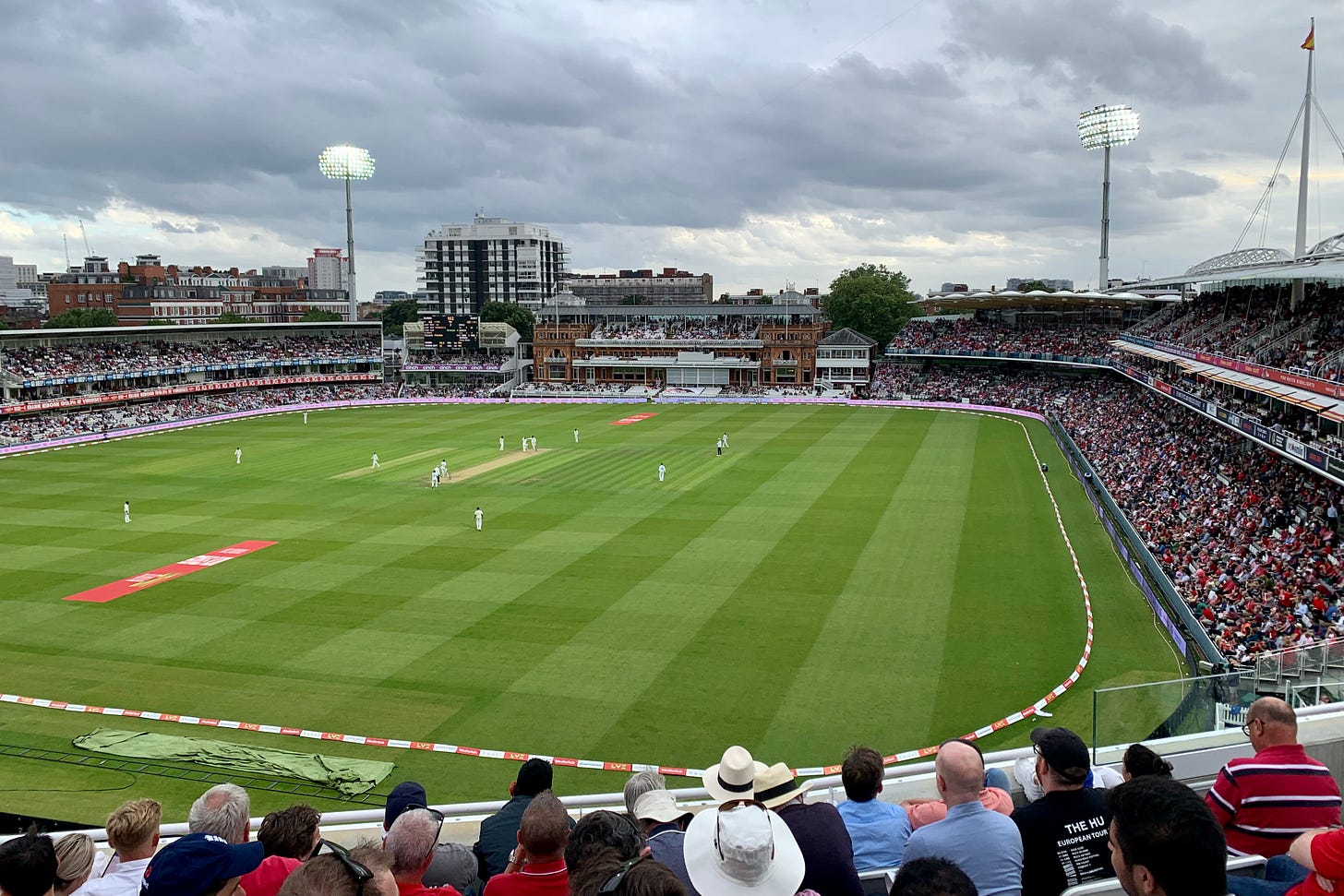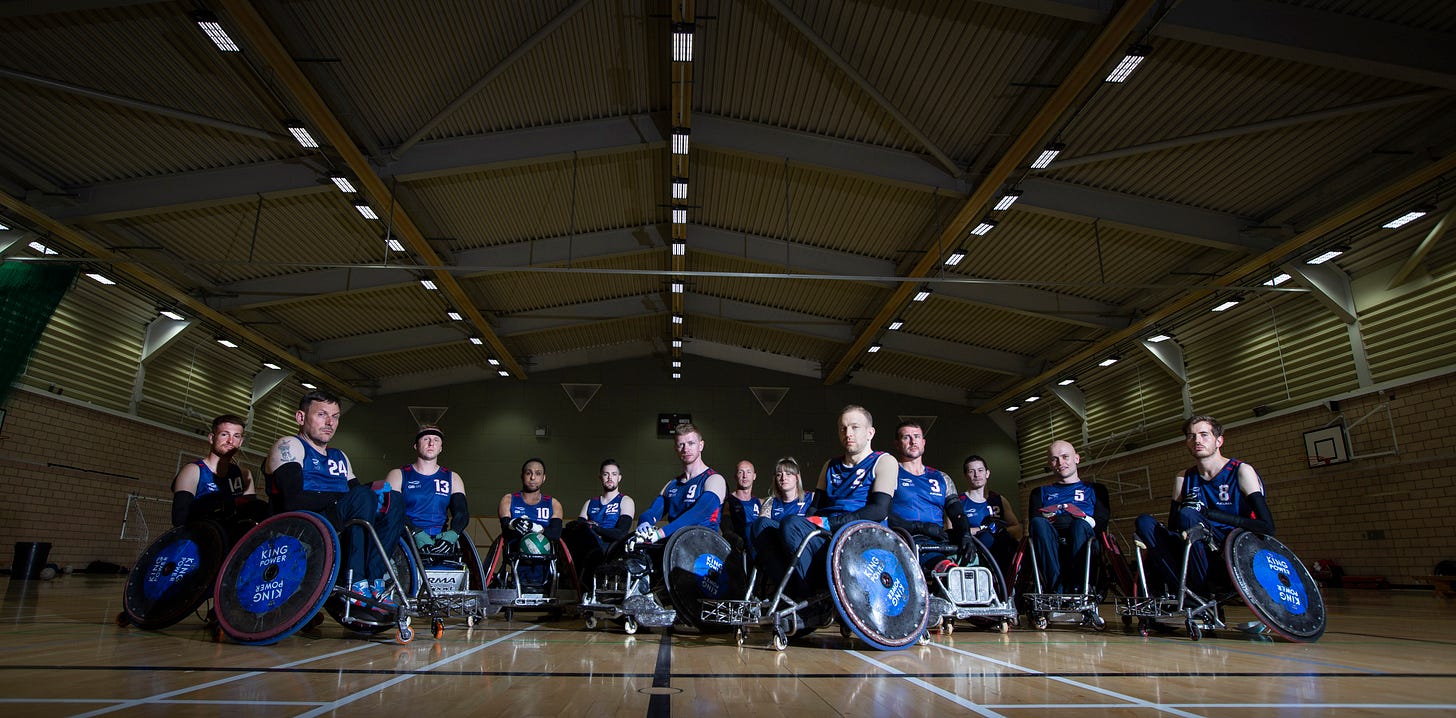Drugs, Scooby Doo and tip-offs
Good and bad of Tokyo, and The Test vs The Hundred
News of CJ Ujah’s positive drugs test after the Olympic sprint relay final was a ‘what the….!?’ moment. My involuntary reaction on hearing it was a single word expletive. Due process to reach judgement will take months but, even if eventually found guilty of doping and banned, the sprinter could yet have a successful career in athletics.
Strange as it may sound, Ujah might even represent Team GB but be unable to compete for Britain outside of the Olympics.
At UK Athletics in 2016 we published a Manifesto for Clean Athletics. One element was the introduction of a clause into the team members’ agreement that athletes sign when they are selected for a British team. This clause says they agree that if they are ever in future found to have committed a serious doping offence they forfeit their eligibility for GB selection. (You can read the full team members’ agreement from 2017 here: Athlete Agreement).
Motivation for this new compact could be traced back to the knots we were tied in when Dwain Chambers, who had finished a doping ban in 2006, returned to athletics two years later after a short stint in American football. We found ourselves legally compelled to select him for British teams when we would rather have not, because of his doping past. Chambers eventually went to the Court of Arbitration for Sport to successfully overturn the British Olympic Association’s own bylaw banning drugs cheats from its team for life and made it onto the team for the London 2012 Olympics.
UK Anti Doping spoke out against the novel addition to our athlete contracts believing it constituted an unfair additional jeopardy for cheats. The BOA, burned by its high profile loss to Chambers, took the same line. We pressed on anyway, believing the public would approve of our motives, and all of the athletes picked for the London 2017 World Championships signed their contracts. CJ Ujah was one of those athletes.
The future selection wrinkle is that technically UK Athletics does not enter a team for the Olympics. That is the BOA’s role. UKA recommends selections which the BOA then processes as its own. This creates the possibility that an athlete could meet the usual qualifying criteria (finishing in the top two in the British Championships and meeting the performance standard for the Games), not be recommended by UKA because of its stance on those who have served drugs bans, but then appeal to the BOA for direct selection as the Association’s athlete contracts do not contain the UKA anti-doping clause.
CJ Ujah will be 30 at Paris 2024. Dwain Chambers last competed for Britain aged 36.
Spot the ball and spot the difference
As trailed in a previous Sport inc., I have enjoyed a day at each of the Lords Test and The Hundred at the Ageas Bowl, all in the interests of research you’ll understand. My conclusion: that both products have much to commend them, and the cricket counties are therefore right to be concerned at the threat posed by the pincer movement of these two formats.
It’s the general hum of the crowd that you notice at a Lords test when you tune out of the specific conversations swirling around you. Something reverential, in keeping with event presentation that consists of nothing more than the well-rounded voice of the stadium announcer rather incongruously recommending that you download the Lords app to heighten your spectator experience. No fireworks, no flame machines, no music during play, no live band at the tea break. The enthralling cricket does its own talking and it mattered not a jot that a mere 207 runs were scored for the fall of 10 wickets in the seven-and-a-half hours from start to finish.
Only problem? From Row G of the upper tier of the new Compton stand, you’ll be hard pushed to see the ball. I thought it was my lousy eye-sight, but swiftly realised that even the most razor-eyed around me were having to follow the dance of the players to intuit the position of the ball and rely entirely on the big screens for replayed detail.
At the Ageas, the gas bill for the flame machines must have been stupendous. Which probably explains the £12 cost of a pint of Pimms. This was source of much complaint from the Scooby Doo, hot dog and seagull in the row in front of me and the three beefy nuns behind - which didn’t stop them getting stuck into their drinks as the afternoon women’s match began.
Not the ECB’s target family market for sure. But there were plenty of families for the two bright-and-breezy matches. 469 runs and 24 wickets in seven-and-a-quarter hours. Well presented, smart tweaks to the T20 format to shave time, and an enthusiastic response from the kids in the crowd, as well as those over the legal age for fruit-based alcoholic drink consumption.
So, two good formats, but only so many weeks in a cricketing summer, and 18 counties to appease, many unhappy and struggling financially in spite of the (rather derisory) £1.3 million they have each been given by the ECB to agree the existence of The Hundred.
The ECB would do well to move promptly to decide whether it is backing The Hundred or T20 as the short-form game of choice, structure its new product around the counties rather than away from them, and clean up the summer calendar to ensure healthy development of both the red ball and white ball game (unless it would like to watch a Test with me from the Compton Upper and then decide on a switch to a Day-Glo ball).
Appointment to view
The opening ceremony of the Tokyo Paralympics is next Tuesday. The wheelchair rugby competition begins the next day and runs to Sunday 29th. Our British team tip off at 17:30 Tokyo time on Wednesday 25th (09:30 UK time). Opponents Canada are 5th in the world. We’re ranked 4th. Only two nations qualify for the semi finals from a group of four that also includes USA and New Zealand.
Sport of the highest order awaits. All Britain’s matches will be screened live on More 4. No excuses not to tune in. Go GB!



